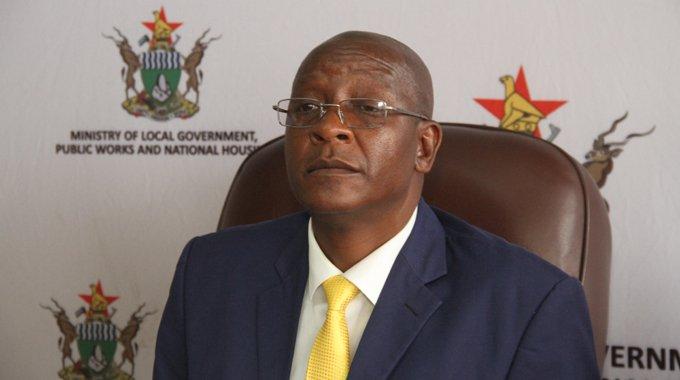News / Africa
Ziyambi accused of shielding Judge Katiyo
28 Oct 2025 at 18:17hrs |
0 Views

Senior officials in the Ministry of Justice have accused their minister, Ziyambi Ziyambi, of attempting to frustrate disciplinary proceedings against High Court Judge Never Katiyo, who faces allegations of serious judicial misconduct for allegedly writing a judgment in a case he never heard.
The Judicial Service Commission (JSC) reportedly adopted a unanimous round-robin resolution three weeks ago referring Justice Katiyo to a disciplinary tribunal after he failed to justify his actions to the commission's satisfaction.
According to ministry insiders, the process - which by law requires the Justice Minister to swiftly set up a tribunal - has stalled because Ziyambi is allegedly trying to protect Katiyo, whom insiders describe as "a pro-government judge."
"Three weeks on, there has been no progress on constituting the tribunal," a senior ministry official said on condition of anonymity. "There are strong suspicions that the minister is manoeuvring to set up a panel that will acquit Katiyo."
Officials allege that Ziyambi has delayed appointing tribunal members to ensure a "sympathetic" panel that could exonerate the judge.
Sources within the judiciary say Katiyo is closely linked to President Emmerson Mnangagwa and his family, a connection that could further compromise the disciplinary process.
Earlier this year, Judge President Mary Zimba-Dube reportedly ordered Katiyo's transfer to Bulawayo following growing concern over his conduct, but sources say the judge defied the directive with Ziyambi's backing.
Following the JSC's recommendation, Katiyo is said to have told colleagues he would "go through the motions" of the disciplinary hearing and return to work by mid-next year.
Legal experts have warned that any perception of executive interference in judicial discipline would gravely undermine public trust in the rule of law.
"The integrity and independence of the judiciary are fundamental," said a retired judge who requested anonymity. "If there is an appearance of political influence in judicial discipline, that undermines the entire system."
The JSC, constitutionally mandated to oversee judicial accountability, is limited by statute once a complaint is deemed to have merit, relying on the minister to establish a tribunal.
Ministry officials stress that transparency, professionalism, and adherence to due process are essential to preserving the rule of law and public confidence in any outcome.
Katiyo's refusal to accept his transfer and his reported political ties have heightened scrutiny over the matter, which has reignited debate about the separation of powers and mechanisms safeguarding judicial independence in Zimbabwe.
The Judicial Service Commission (JSC) reportedly adopted a unanimous round-robin resolution three weeks ago referring Justice Katiyo to a disciplinary tribunal after he failed to justify his actions to the commission's satisfaction.
According to ministry insiders, the process - which by law requires the Justice Minister to swiftly set up a tribunal - has stalled because Ziyambi is allegedly trying to protect Katiyo, whom insiders describe as "a pro-government judge."
"Three weeks on, there has been no progress on constituting the tribunal," a senior ministry official said on condition of anonymity. "There are strong suspicions that the minister is manoeuvring to set up a panel that will acquit Katiyo."
Officials allege that Ziyambi has delayed appointing tribunal members to ensure a "sympathetic" panel that could exonerate the judge.
Sources within the judiciary say Katiyo is closely linked to President Emmerson Mnangagwa and his family, a connection that could further compromise the disciplinary process.
Following the JSC's recommendation, Katiyo is said to have told colleagues he would "go through the motions" of the disciplinary hearing and return to work by mid-next year.
Legal experts have warned that any perception of executive interference in judicial discipline would gravely undermine public trust in the rule of law.
"The integrity and independence of the judiciary are fundamental," said a retired judge who requested anonymity. "If there is an appearance of political influence in judicial discipline, that undermines the entire system."
The JSC, constitutionally mandated to oversee judicial accountability, is limited by statute once a complaint is deemed to have merit, relying on the minister to establish a tribunal.
Ministry officials stress that transparency, professionalism, and adherence to due process are essential to preserving the rule of law and public confidence in any outcome.
Katiyo's refusal to accept his transfer and his reported political ties have heightened scrutiny over the matter, which has reignited debate about the separation of powers and mechanisms safeguarding judicial independence in Zimbabwe.
Source - online
Join the discussion
Loading comments…



































